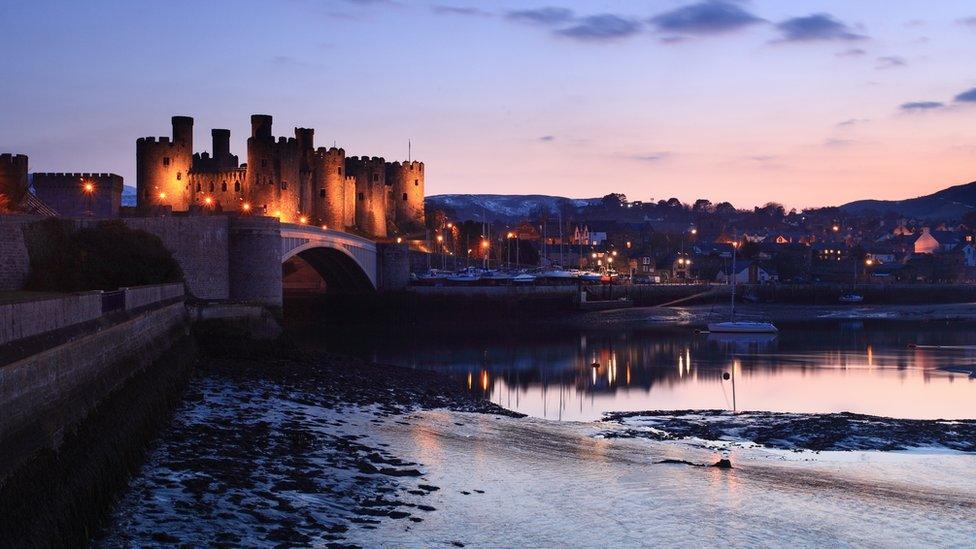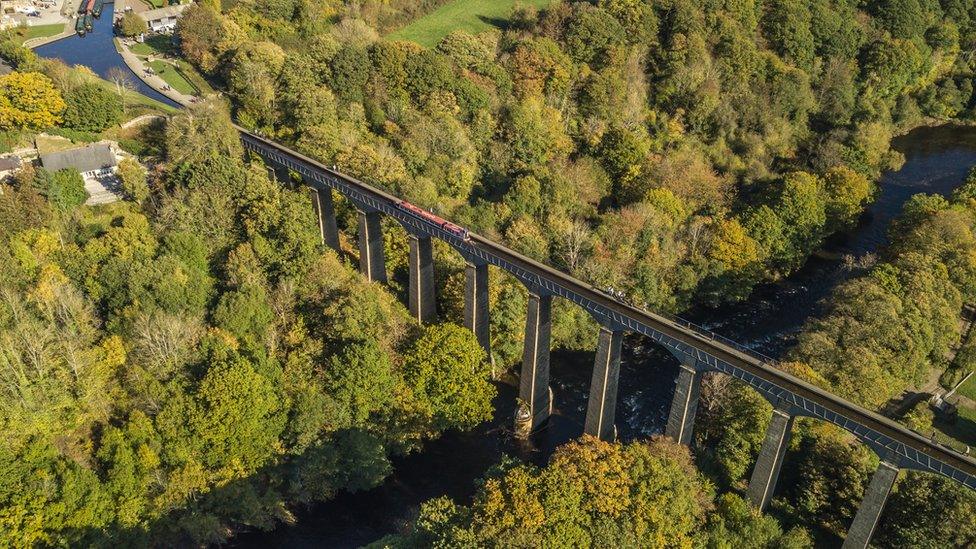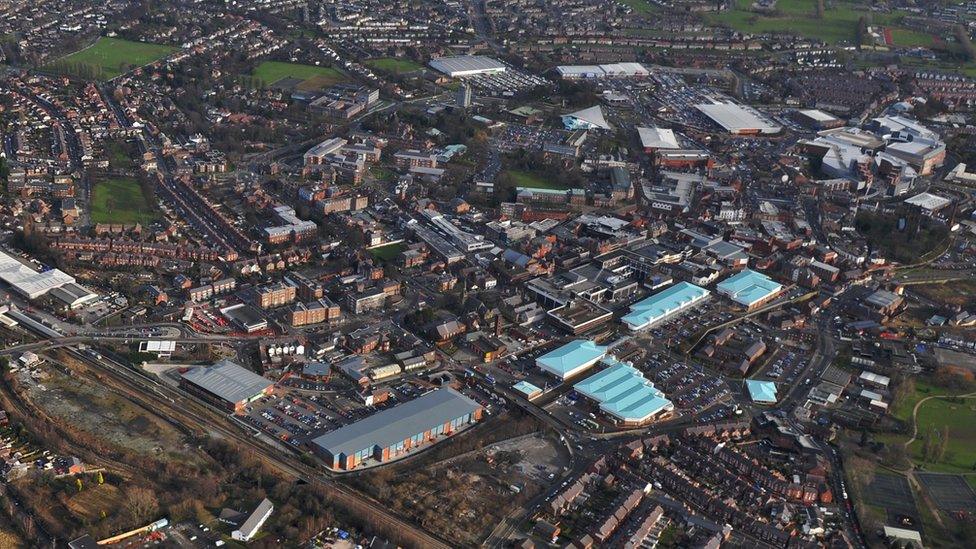Wales Covid lockdowns: 'Grave concern' over socialising in houses
- Published
- comments
Lockdowns could see businesses "close for good"
People ignoring coronavirus rules by socialising in houses are the reason behind a rise in cases leading to parts of north Wales going into a lockdown, a council leader has claimed.
Those living in Conwy, Denbighshire, Flintshire and Wrexham will not be able to leave or enter without a "reasonable excuse" such as work or education.
They are the same restrictions as seen in most of south Wales.
Conservative politicians said the measures were disproportionate.
They urged Welsh ministers to reconsider the restrictions, which will come into effect at 18:00 BST on Thursday.
Flintshire council leader Ian Roberts said the virus is "is affecting people across north Wales".
"I believe that people meeting in houses has caused the higher incident rate."
But Mr Roberts wants to see restrictions imposed on people being able to travel to open parts of Wales from areas in England which have local lockdowns but no rules on leaving the area.
"If I am supporting the people of Flintshire in lockdown unable to go to a caravan further down the north Wales coast... it doesn't seem right that people from higher infection rates in England can go to the same caravan parks," he added.
"When these restrictions are applied it has to make sense to the local population. Whether this makes sense we will see."
Meanwhile, Conwy Conservative council leader Sam Rowlands said he was "disappointed and frustrated" the Welsh Government did not take measures to protect tourism which would lose out again.
Allow X content?
This article contains content provided by X. We ask for your permission before anything is loaded, as they may be using cookies and other technologies. You may want to read X’s cookie policy, external and privacy policy, external before accepting. To view this content choose ‘accept and continue’.

"There's no scientific evidence visitors are causing the rise in Covid cases," he told the Local Democracy Reporting Service.
"If there was, there should be measures in place but there isn't any evidence that's the cause.
"It's disappointing and frustrating that's not being recognised by the regulations being put in place.
"It's likely to have a big effect on the tourism industry which has already suffered this year - and that's why I'm disappointed there isn't any recognition of that by Welsh Government.
"The ask has been made to Welsh Government for specific measures which allow visitors to come in and support our tourism sector, but it's disappointing they haven't been taken on board."

Conwy is among the areas going into lockdown
What are the rules?

Under the restrictions no-one can leave or enter a lockdown area except for a limited set of reasons, including:
to work, if you cannot work from home
to provide care
travelling to education
elite athletic training and competitions
to provide or receive emergency assistance
to meet a legal obligation, and to access or receive public services
to avoid injury or illness or escape a risk of harm
It is permitted to travel through the areas concerned, so motorists can continue to use the A55 to get to or out of Gwynedd and Anglesey.
Rules allowing people to meet extended households are suspended, meaning people can only be with their usual household when indoors, including in pubs and restaurants.
Other Wales-wide restrictions apply, including the wearing of face masks in shops.

The Pontcysyllte aqueduct near Llangollen is close to the border between Wrexham and Denbighshire

Rev Rebecca Sparey-Taylor, a priest in the Denbigh mission area, said: "I have to be honest I'm quite disappointed - not with the lockdown itself.
"I can understand that there is such a need for people to keep safe but there is very much a sense of surprise among the congregation.
"The numbers do appear here to be lower then in the south."
But Dr Peter Saul, chairman of the Royal College of General Practitioners Wales, said the country was "generally" ahead of England in taking action.
"I think it's part of the Welsh Government's cautious approach to the virus," he said, adding there were cases where "people lower their guard by being a little more careless" on following guidelines.
Tuesday's announcement means 504,956 more people will be added to local lockdowns, with a total of 2.3 million people under tougher restrictions than at the start of September.
Just six mostly rural counties - Monmouthshire, Pembrokeshire, Ceredigion, Gwynedd, Anglesey and Powys - will not be subject to restrictions from Thursday.

Conwy has seen 46.1 cases per 100,000 people in the latest week, while the equivalent figure for Denbighshire was 37.6. In Flintshire it has risen to 53.8, and Wrexham it is 43.4.
The worst rate in Wales is Blaenau Gwent, which has a rate of 274.8 per 100,000 over seven days.
In the south, Blaenau Gwent, Bridgend, Caerphilly, Cardiff, Newport, Rhondda Cynon Taf, Swansea, Torfaen, Merthyr Tydfil, Neath Port Talbot and Vale of Glamorgan are all subject to restrictions.
The town of Llanelli is also under local lockdown rules.
But in Caerphilly and Newport there had been "real falls in case numbers", according to Health Minister Vaughan Gething.

Wrexham has a case rate of 43.4 per 100,000 people over seven days
- Published29 September 2020
